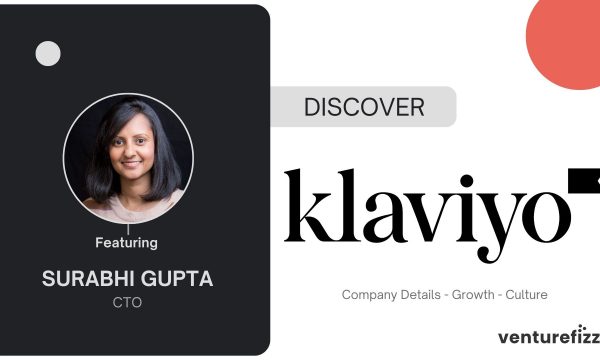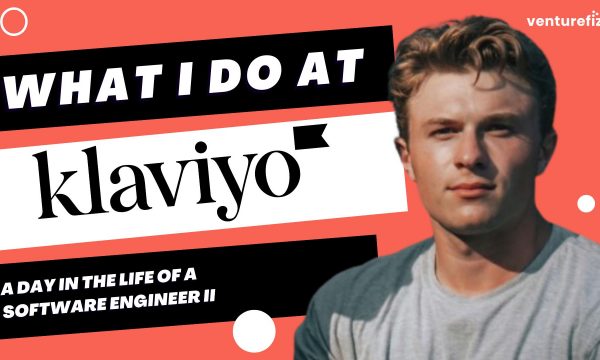Klaviyo is the only CRM built for B2C brands.
We connected with Adil Wali, Chief Product Officer at Klaviyo, to learn about his background, what drew him to Klaviyo, the unique challenges his team tackles, and more.
In this video,
Adil answers.
- Who is Klaviyo?
- His Role and Responsibilities
- Adil’s Background & Path to Klaviyo
- The latest at Klaviyo
- Why now is a great time to join Klaviyo
Video Transcript
I’m Adil Wali. I’m the chief product officer here at Klaviyo.
Klaviyo thinks of ourselves as the only CRM that’s built for B2C brands. What that means is we’re bringing together marketing capabilities, analytics, and service all into one platform. The goal is that businesses are able to better understand their customer, drive up lifetime value, and engage with their customer using the data that they have. That’s us, using AI and our built-in data to provide the best possible experience.
My role at Klaviyo, as the chief product officer, is that I’m accountable for our product, our design, and our research function. We have a qualitative research function that we do. We also are driving product analytics, which is looking at insights from the data that we have about our customers and about how to make the product better. We also have a strategy organization inside of product and we have corporate development. So we’re looking at if we’re not going to be building something, if it makes sense to buy or partner—that’s another part of the organization. The responsibilities really cut across short-term and long-term strategy, and then ultimately our product output. What are we shipping? How do we stay competitive in the market? How do we build the best products that drive the most value for our customers?
I have been an entrepreneur for most of my adult life. I started my first company 25 years ago now. My first couple businesses were in the agency landscape and then I did three venture-backed businesses. My first job where I wasn’t a founder of the place I was working was at Meta, where I ran the fintech organization.
What really drew me to Klaviyo was two things. One, my first venture-backed business was one of Klaviyo’s early customers many, many years ago—this is like 2012, 2013. It’s a company called ModCloth, and we were one of Klaviyo’s first customers years back. I of course tracked and followed the company over the years and really have been impressed by what the company’s been able to do, not only in the core product, but as it starts to expand into new spaces. Looking at the business, I think Klaviyo is really at a unique place of scale. Right around a billion dollars of ARR and still feeling like it’s at this ground floor place. There’s so much more to do for the business. There’s so much more growth. That to me was particularly interesting: a core product that has really high product market fit, but a company that’s aggressive and still taking many shots on goal with new products. That to me was really appealing and it felt like a special time to be here. So that was ultimately what drew me here.
There’s a lot going on at Klaviyo right now in terms of product development and launching new capabilities. We’re a company of builders. That for me as an entrepreneur was really important, being at a company that’s still founder-led, that has the two founders in the business. There’s a real focus on innovation, building new things, and creating value for our customers.
A bunch of things that we’re working on, stepping back, we have this CRM framing around what we’re doing. We’re building the first B2C CRM for D2C brands. There’s a bunch of features that round out our capabilities that help us provide value there.
The first is we are launching a whole new set of experiences in the service arena. We have a customer hub product, we have a unified inbox product, and AI agents. All of that is launching this year. Putting that together with what we already have in retention marketing is really interesting because it allows Klaviyo to be this nucleus or command center that you can drive engagement with your customers—whether that’s helping them find a product that they love and buy for the first time, or if they have an issue and they want to engage with support and turning that into a wow moment experience. All of that we’re bringing into one place, which I think is really exciting.
On the AI side, we think about AI pretty holistically. There’s AI in a bunch of parts of our experience today and there’s lots of features we’ve shipped around that that are part of the everyday Klaviyo experience. Things like smart send time on messaging, or recommended product blocks, or even the next recommended product for a specific user. All of those things that we can deliver to folks in real time is really powerful.
Another category of feature innovation for us is adding channels to the experience so we are wherever the customer is. We of course started the business focused primarily on email. More recently we have an SMS offering which has expanded to now include RCS. And we have WhatsApp in private beta. Really showing up wherever the customer is is really important. So that’s another key category of investment.
The last piece for us is that analytics and insights piece. We have a marketing analytics product that helps customers understand the data in their business, understand what products are selling, how they’re resonating with customers, and then help them take action based on those insights. That’s really how I would bucket the work we’re doing today across all those categories. It is a lot.
The last piece on AI I would add is you see today how fast AI is changing the landscape. People are looking for a product that either is like a “do it with me” or “do it for me.” We’re aiming to innovate in both of those vectors. Many people are looking for a co-pilot-like experience—they actually want to have the AI help them. And then other folks kind of want to take their hand off the wheel a little bit and say, “I actually really want you to help me achieve this business objective and I want to review the results.” So we’re working aggressively on both those types of capabilities as well.
I think that right now is a particularly great time to join Klaviyo for a handful of reasons. The first is this unique place in time. There are not that many founder-led companies of our size that are recently public. The founders are still in the business, still very active, and we’re very hungry, we’re ambitious. There’s a culture of intensity that permeates these four walls. I think that’s really important, having that kind of founder mindset in the business, particularly for product folks, because I do think founder-led companies show up differently for product folks than they do with maybe professional management.
We also have this really powerful platform for innovation. This core product has very high product market fit. We have more than 169,000 customers today. Top brands all over the world, like Glossier, Mattel, Daily Harvest—all these companies are using Klaviyo to drive growth, which is an awesome platform for us to innovate on top of, to launch net new features and capabilities using that core platform.
The last bit here that I think is particularly important, especially with what’s happening in AI, is that Klaviyo at its core is a data company. We started the business with this focus on what today we call the KDP or the Klaviyo Data Platform and every one of our capabilities sits on top of that. So you’ve got this marketing set of capabilities, you’ve got service, you’ve got analytics, all these things are powered by this core Klaviyo Data Platform. The reason that’s important, in my experience having done AI at scale, is that AI is only as powerful or as good as the data behind it. I think that’s what makes right now a particularly exciting moment for AI innovation at Klaviyo.





